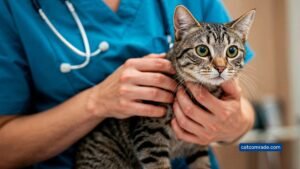Should I Feed My Cat After Vomiting? Expert Vet Tips Revealed
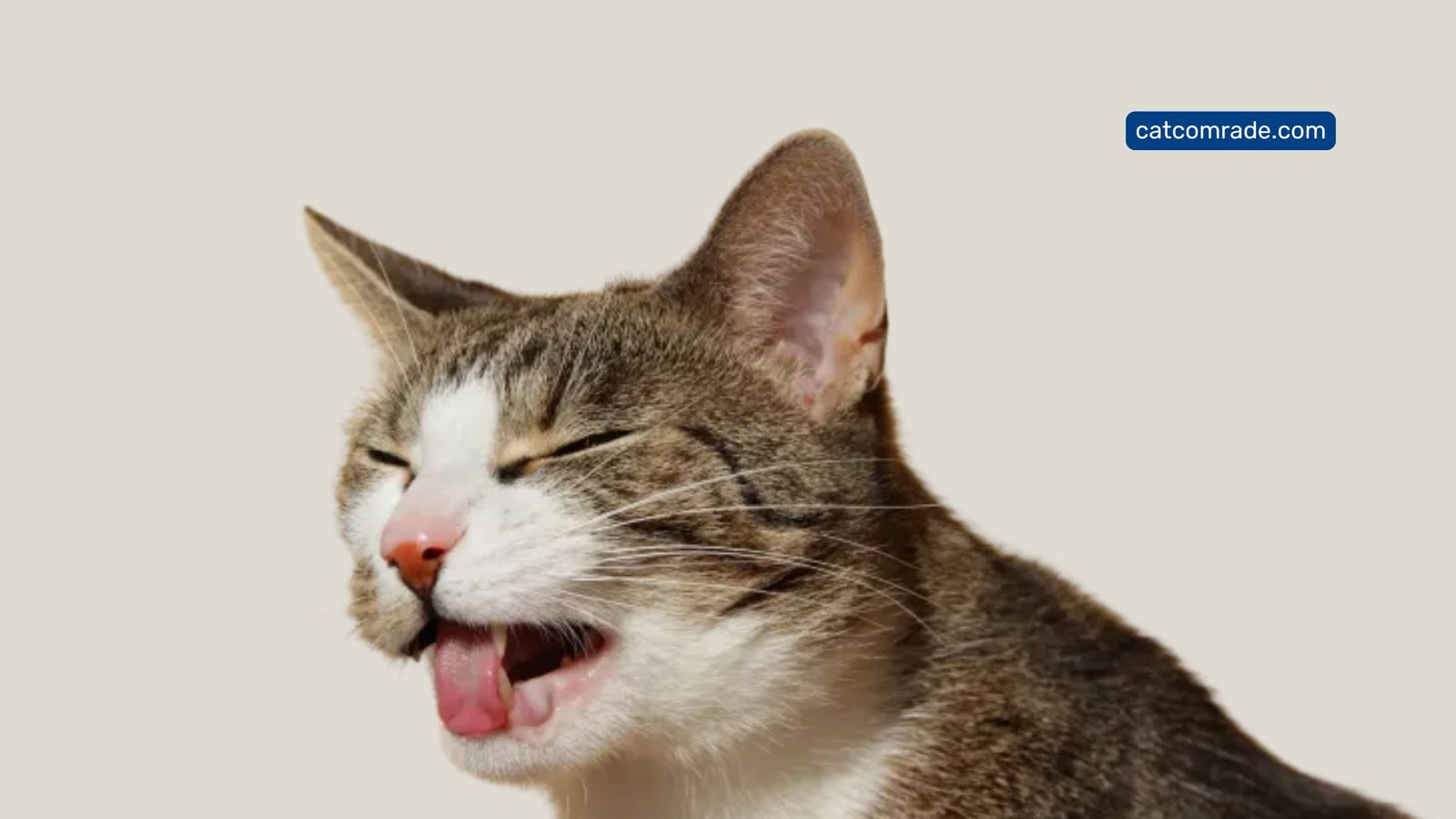
Has your cat just vomited, and now you’re wondering if it’s safe to feed them? It’s a common concern for many pet owners.
You want to help your furry friend feel better, but you’re unsure what’s best right now.
Feeding your cat too soon or the wrong way could make things worse.
You’ll discover simple steps to take after your cat vomits, so you can make the right choice for their health and comfort.
Keep reading to find out exactly what you should do next.
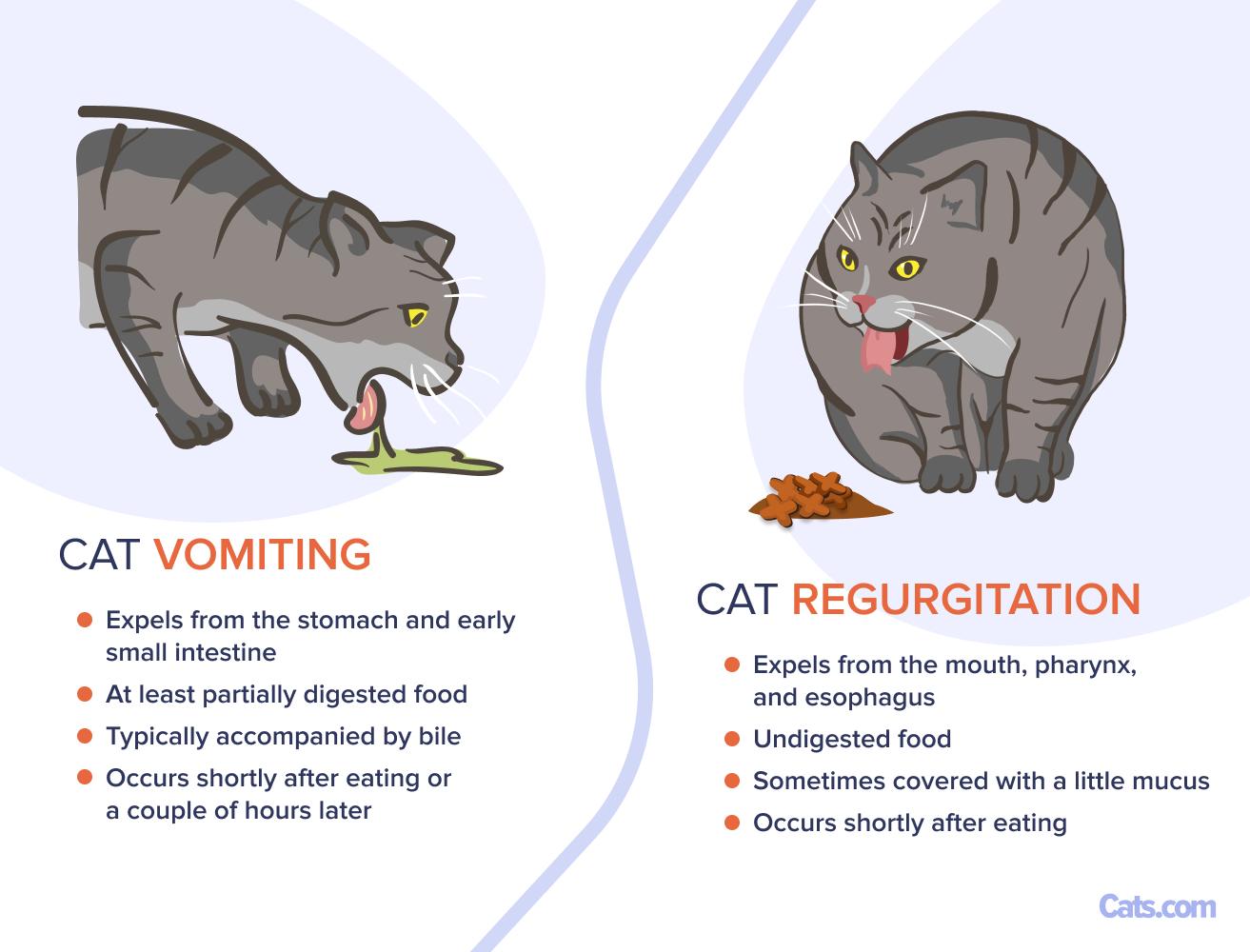
Credit: cats.com
Causes Of Cat Vomiting
Vomiting in cats can happen for many reasons. It is important to know the causes to care for your pet well.
Some causes are simple and easy to fix. Others need a vet’s help.
Understanding these causes helps you decide if feeding your cat is safe after vomiting.
Dietary Issues
Food problems often cause vomiting in cats. Eating too fast can make a cat throw up.
Sudden changes in diet can upset their stomach. Spoiled or bad food also leads to vomiting.
Some cats do not digest certain foods well. Overfeeding may cause discomfort and vomiting.
Health Conditions
Many illnesses cause cats to vomit. Common ones include infections and stomach problems. Kidney or liver diseases can upset digestion.
Parasites in the gut often lead to vomiting. Tumors or blockages in the intestines may also cause this symptom.
Chronic vomiting needs a vet’s diagnosis.
Ingested Toxins
Cats may eat harmful substances by accident. Poisonous plants, chemicals, or medicines cause vomiting.
Household cleaners or insecticides are toxic. Some human foods like chocolate are dangerous.
If your cat eats toxins, vomiting is a natural reaction. Immediate vet care is often necessary.
When To Withhold Food
Knowing when to withhold food after your cat vomits is important. Feeding too soon can upset their stomach more.
It can also make vomiting worse. Sometimes, skipping a meal helps your cat’s tummy rest and recover.
Watch your cat closely to decide the best time to offer food again.
Signs To Watch
Observe your cat carefully after vomiting. If your cat vomits repeatedly, do not feed immediately.
Look for other signs like lethargy, diarrhea, or refusal to drink water. These signs suggest illness and need a vet visit.
If your cat is alert and drinks water, wait before feeding. Vomiting with blood or strange objects needs urgent care.
Duration Of Fasting
Most cats benefit from fasting for 6 to 12 hours after vomiting. This short break helps the stomach settle.
During this time, offer small amounts of water to prevent dehydration. After fasting, give a small, bland meal.
Gradually increase food if your cat keeps it down. If vomiting continues after feeding, extend the fast and consult a vet.
Safe Feeding Practices Post-vomiting
After your cat vomits, feeding needs care and attention. Safe feeding helps your cat recover faster.
It avoids more stomach upset and discomfort. Choosing the right food and feeding method is key to preventing further vomiting.
Understanding safe feeding practices helps your cat get back to normal quickly.
Types Of Food To Offer
Offer bland and easy-to-digest food first. Plain boiled chicken or turkey without skin works well.
White rice or pumpkin can help soothe the stomach. Avoid rich, spicy, or fatty foods. Wet food is better than dry food after vomiting.
It keeps your cat hydrated and is gentle on the stomach.
Portion Control
Feed small portions at a time. Large meals can upset your cat’s stomach again. Start with one or two tablespoons of food.
Watch how your cat reacts before giving more. Gradually increase the portion size as your cat feels better.
Small meals reduce the risk of vomiting again.
Frequency Of Feeding
Feed your cat more often but in smaller amounts. Try feeding every three to four hours.
This keeps the stomach from being empty too long. Regular small meals help the stomach heal gently.
Avoid skipping meals, but do not overfeed. Consistent feeding times help your cat’s digestion recover.
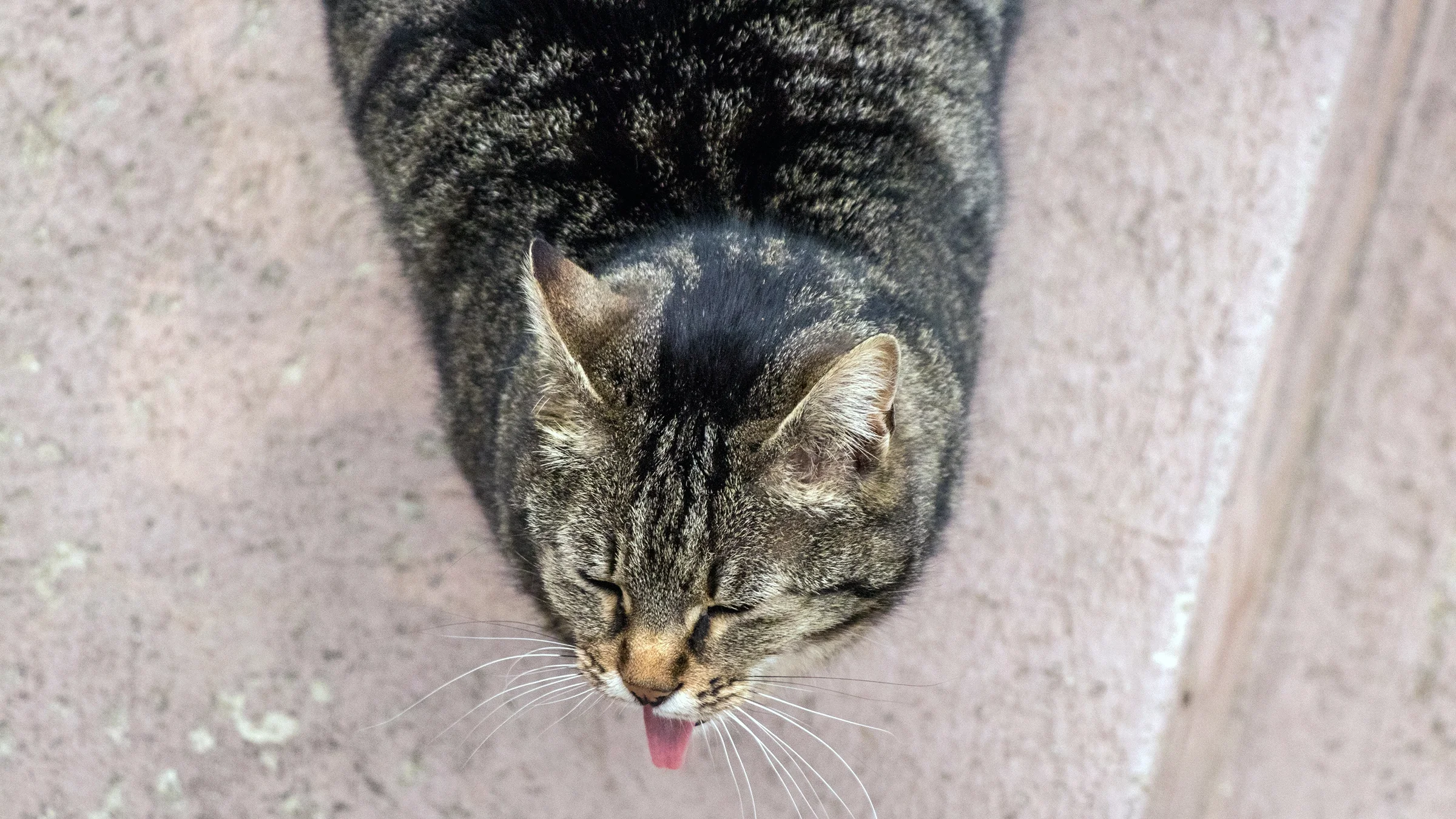
Credit: www.goodrx.com
Hydration Tips For Vomiting Cats
Vomiting can quickly drain a cat’s body of fluids. Keeping your cat hydrated is very important after vomiting.
Proper hydration helps the body heal and prevents serious problems.
Here are some easy ways to help your cat stay hydrated and recover faster.
Water Intake Importance
Water is the best way to keep your cat hydrated. Always offer fresh, clean water. Place water bowls in quiet, easy-to-reach spots.
Small, frequent sips are better than large drinks. Watch your cat closely to make sure it drinks enough.
Dehydration can cause weakness and delay healing. If your cat refuses to drink, try using a syringe or a pet water fountain.
These can encourage drinking by making water more interesting.
Use Of Electrolyte Solutions
Electrolytes help balance fluids and support body functions.
Special pet electrolyte solutions can help replace lost minerals. Use these solutions only after talking to your vet.
Do not give human electrolyte drinks. They may have ingredients harmful to cats. Follow the vet’s advice on amounts and frequency.
Proper use of electrolytes can speed recovery and reduce dehydration risks.
When To See A Vet
Knowing when to see a vet is important if your cat vomits. Vomiting can be a sign of mild issues or serious illness.
Watching your cat closely helps you decide the next step. Some signs mean you should seek veterinary care quickly.
Persistent Vomiting
Vomiting that lasts more than 24 hours needs vet attention. If your cat vomits several times in a day, call the vet.
Continuous vomiting can lead to dehydration and weakness. The vet can find the cause and offer treatment.
Additional Symptoms
Look for other signs like lethargy, loss of appetite, or diarrhea. These symptoms with vomiting may show a deeper problem.
Difficulty breathing or changes in behavior also need vet care. Early checkups can prevent serious health issues.
Emergency Signs
Take your cat to the vet immediately if vomiting includes blood. Sudden collapse, seizures, or severe pain are emergencies.
Also, if your cat cannot keep water down, get help fast. These signs need urgent medical care to save your cat.
Preventing Future Vomiting Episodes
Preventing future vomiting in cats helps keep them healthy and happy. Vomiting can signal many issues, from diet to stress.
Taking steps to reduce vomiting episodes improves your cat’s quality of life. Small changes can make a big difference.
Dietary Adjustments
Choose easily digestible foods for your cat. Avoid sudden changes in diet. Introduce new foods slowly over several days.
Feed smaller meals more often to prevent overeating. Remove any foods that seem to upset your cat’s stomach.
Fresh water should always be available to keep them hydrated.
Environmental Changes
Keep your cat’s eating area calm and quiet. Reduce stress by providing a safe space. Avoid loud noises or sudden movements during mealtime.
Provide toys and scratching posts to keep them relaxed. Keep the litter box clean and accessible.
Stress can trigger vomiting, so a peaceful environment helps.
Regular Health Checks
Schedule regular vet visits for your cat. Early detection of health issues prevents vomiting. Monitor your cat’s behavior and appetite daily.
Report any unusual symptoms to the vet quickly. Vaccinations and parasite control keep your cat well.
Routine checks support long-term health and comfort.
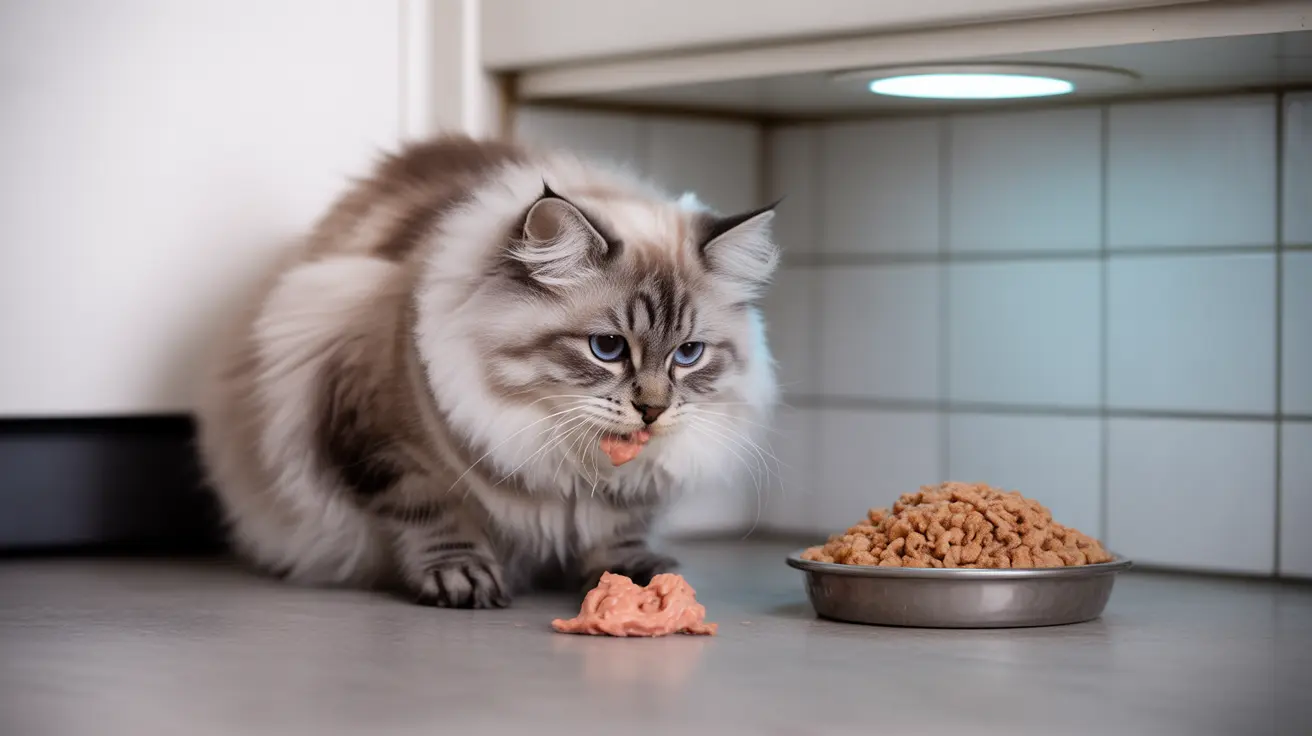
Credit: www.petscare.com
Frequently Asked Questions
Should I Feed My Cat Immediately After Vomiting?
No, wait at least 6 hours before feeding. This helps your cat’s stomach settle and prevents more vomiting.
What Type Of Food Is Best After My Cat Vomits?
Offer bland, easy-to-digest food like boiled chicken or rice. Avoid rich or fatty foods until fully recovered.
How Much Food Should I Give My Cat After Vomiting?
Start with small portions, about a teaspoon to a tablespoon. Gradually increase the amount as your cat tolerates it.
When Should I Contact A Vet After My Cat Vomits?
See a vet if vomiting continues beyond 24 hours, or if your cat shows lethargy, diarrhea, or dehydration signs.
Conclusion
Cats need time to rest after vomiting. Offer small amounts of water first. Wait a few hours before feeding food.
Choose gentle, easy-to-digest meals. Watch your cat closely for more vomiting. If vomiting continues, see a vet fast.
Feeding too soon can upset their stomach.
Patience helps your cat heal better. Caring for your pet shows you care. Always keep an eye on their health.



